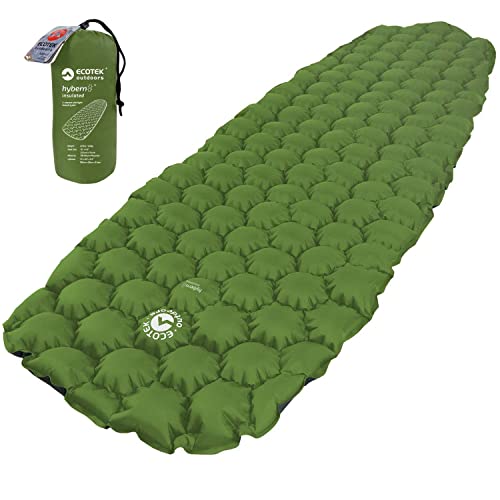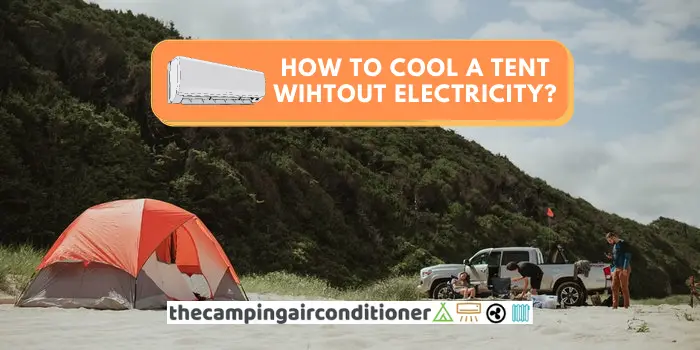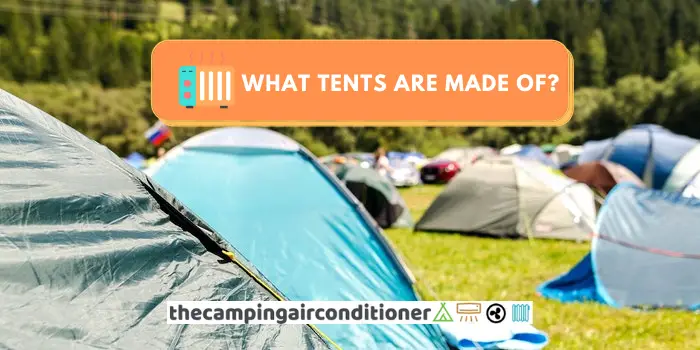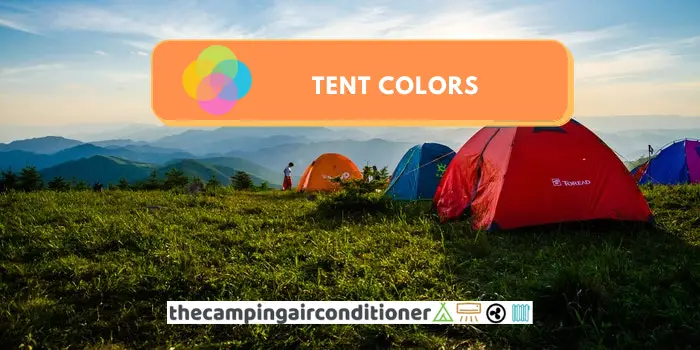Beach camping is a great way to change scenery and break away from traditional camping in nature. Its advantages include cheaper accommodation, plenty of space, unique sunrise and sunset views, and the unbeatable feeling of falling asleep with the smooth sound of crashing waves.
However, if you are considering camping on the beach during winter, you should prepare and plan accordingly to have a relaxing and enjoyable time and bring adequate camping gear with you.
Let’s just say that I’ve learned from experience and that what I’m about to share with you are tips that you shouldn’t overlook if you want to have a great camping trip on the beach during the year’s colder months.
Read on to learn more!
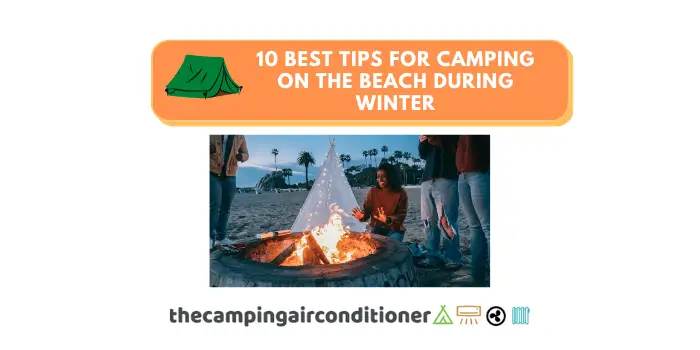
By the way, The Camping Air Conditioner is sponsored by readers. When you buy through one of our links, we may earn an affiliate commission at no extra cost to you.
Is Winter Camping a Good Idea?
Winter camping wouldn’t be the first idea to strike the normal person when it comes to picking a time and a place for a camping trip, but it’s definitely not unique. To start, beach camping during the winter is much cheaper, and very few people do it as hardly anyone goes near the water when it’s cold out.
Additionally, certain states like California permit bonfires on the beach, which is great news for those who want to keep warm during the colder months of the year. Not to mention that you can use bonfires to make food and whatnot on top (by the way, if you want to check this article to learn what is the best firewood for a campfire).
I’ve winter camped a number of times, and it’s great fun, as long as you plan everything out of course, and that’s exactly what I’ll get into in the next section.
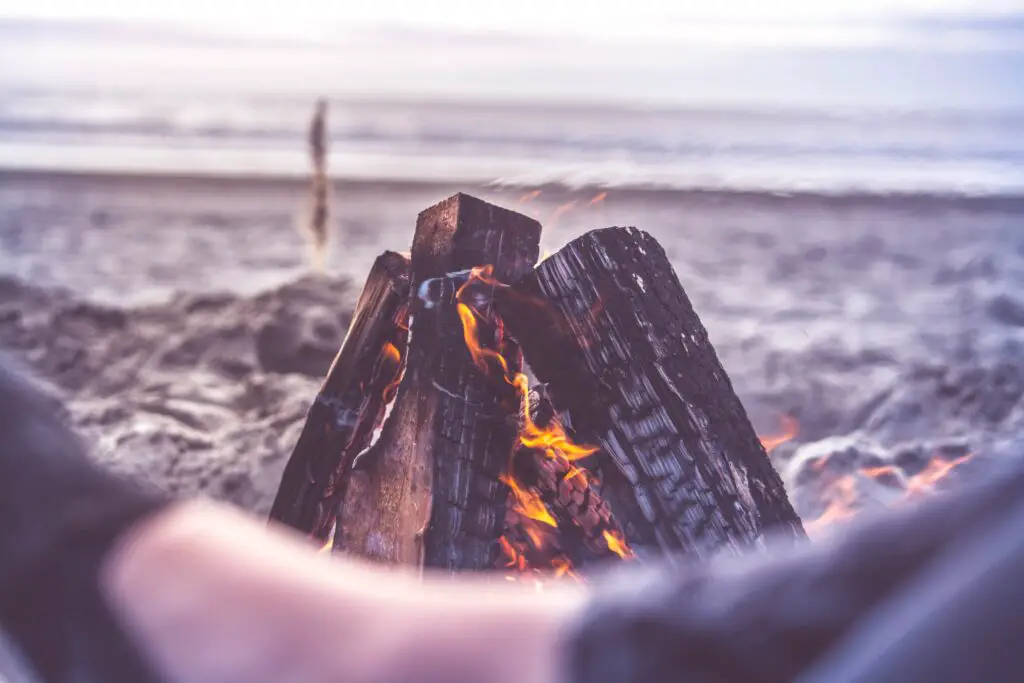
How to Plan and Prepare a Successful Winter Beach Camping Trip
While a beach camping trip during winter can be a lot of fun, you need to plan it out properly, especially if you want to make the most of the trip. So, here are 10 great tips to help you do that.
#1 - Get an Accurate Weather Forecast
The first thing you need to do if you plan on camping during winter, whether on the beach or in the forest, is get a weather forecast.
There are definite dangers when camping during winter, so it’s important to make sure to go on days that have relatively calm weather, and the temperatures won’t get too cold. Overall, we do not recommend beach camping with temperatures below 40 Fahrenheit degrees – it might get extremely cold with windy conditions.
Make sure to listen to the weather forecast (you can also use accuweather.com), and if it shows that the conditions won’t be ideal on certain days, it’s best to avoid those dates, especially if you’re up north, as the last thing you want to do is be freezing.
#2 - Stock Up on Sand Stakes
When camping on the beach, you can’t use the regular stakes for your tent. Sand is a very different type of surface, and standard tent stakes simply won’t hold your tent into place, especially if it’s windy.
This is why I recommend visiting your local camping supply store to find sand stakes, which make it much easier to secure your tent on the beach. Overall, we advise that sand stakes have the following features (as a minimum):
| What to look for in a tent stake for sand | |
| Length | At least 10 inches long to allow for better anchorage, given how loose sand soil is |
| Width | The wider, the better – The widest options will help in anchoring your tent on the ground |
| Design | U-shaped or Screw tent to work better with sand. |
| Material | There are multiple options. Preferably, pick options that will not bend in case o high winds, such as heavy-duty plastic, polycarbonate, and aluminium. |
Our go-to option is detailed below – Orange Screw comes at a great value for money and offers everything you need for a beach stake for your tent.
- Lifetime Breakage Guarantee - If you break it, we will replace it!
- Extremely lightweight - 100g
- Heavy-duty and resistant (Polycarbonate Plastic)
- Can be use in Sandy or Loose Soils
- Length: 12 1/4''
#3 - Face the Tent Away from the Ocean
It might seem like a good idea to face your tent towards the ocean at first. After all, it allows you to walk out of the tent and take in the view, smell, and feel of the sea right away.
However, most experienced campers will tell you that when camping on the beach, regardless of the season, it’s important to face the tent away from the ocean.
The wind comes from the ocean, so facing your tent towards it will cause a lot of sand to enter your tent, which can be pretty uncomfortable and annoying to deal with.
#4 - Lubricate and protect the Tent Zipper
The humidity and salinity of the sea air can do some damage to your zipper. On top of that, the sand can get caught in between the tiny areas within the zipper, which can cause your zipper to get stuck in place.
This can be very annoying on a camping trip, so I recommend lubricating the zipper before packing for the trip. If possible, try to protect the zipper area.
#5 - Bring Layers and adequate camping gear
It might get cold during your camping trip. So, it’s important to dress in layers and bring a lot of warm clothing (i.e. thermal base layers).
If possible, you could also get tent heaters that will make it much easier to get cozy and comfortable even when the temperatures start to drop outside.
Other important reminders:
- Check whether your tent has UV protection – Read our detailed guide on UV protection for tents for further details. Even though you are camping in winter, you might still be exposed to UVA and UVB rays that can damage your skin and lead to cancer in the worst-case scenario.
- ALWAYS wear sunscreen
- If you love camping cooking as much as I do, it might be worth considering a kitchen stand with windshield. Otherwise, you might get frustrated trying to prepare your meal.
#6 - Find the Right Spot to pitch your tent
When camping on the beach, take your time to find the right spot, especially if you expect the weather to be windy. The ‘right spot’ is quite a subjective term as we all have different preferences, so it’s best to settle where you feel most comfortable.
Our preferences are:
- Shaded areas to avoid excessive sun exposure
- At least 20m away from the waterline associated with high tides (trust me, as appealing as it might be, you don’t want to be too close to the water!)
- As detailed above, face your tent away from the water
#7 - Bring a Sleeping Pad
The sand is not the best surface to sleep on. I’ve tried it, and it’s not great for a night’s sleep. I woke up a number of times during the night and in the morning, I was super tired and with mild back pain, to say the least.
So, to avoid the experience that I had, bring your sleeping pad with you. My preferred option for winter camping is ECOTEK Outdoors Insulated Sleeping Pad (below), which offers good insulation, flexibility to adapt to sandy soil, and good comfort levels.
- 4 Season pad with optimal insulation
- Fast inflation and deflation
- Lightweight and durable
- Suitable for beach camping
#8 - Stay Hydrated
When going on a camping trip, you need to bring a lot of water and other liquids to keep you hydrated. The last thing you want to do is find a local store to buy water instead of enjoying your time camping right by the water.
How much water should you bring for your trip? According to Healthline.com, an adult’s recommended water intake per day is approximately 2 L. Therefore, check how big your group is and how long you will stay to find the right amount of water.
#9 - Bring Firewood & Fire Starters
When camping, it’s essential that you understand camping stoves vs wood fires and when you should use each one of them. Since bonfires are allowed on most beaches in the states, bringing firewood and fire starters is a great idea, if you want to make a beach fire, of course
#10 - Don’t Leave Awnings Out
The beach can get very windy. If you leave your awnings out, the wind could blow them away and rip them away from you. If you don’t want this to happen, I recommend retracting the awnings, especially when the wind gets very strong.
I wrote an article with 13 useful tips to camp with high winds before, check it out to be better prepared for windy conditions.
Conclusion
While most people associate the beach with summer fun, you can have a lot of fun at the beach, even when the temperatures start to drop. A winter beach camping trip may offer the unique camping experience you’ve been craving.
With that said, camping in the winter is very different from camping in the summer. So, if you’re planning a beach camping trip this winter, follow the tips from above to have the best possible time outdoors.


